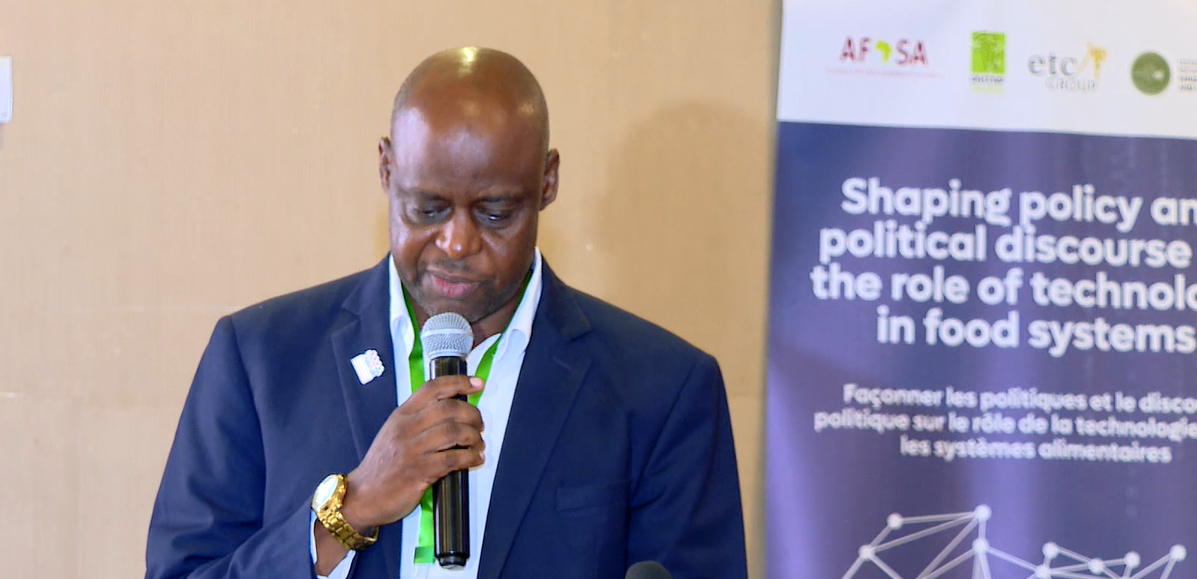Africa Must Urgently Ensure Food Sovereignty that Embraces Culture, Ecological Heritages: AFSA Chairperson - ENA English
Africa Must Urgently Ensure Food Sovereignty that Embraces Culture, Ecological Heritages: AFSA Chairperson

Addis Ababa, October 2, 2025 (ENA) -- There is an urgent need for Africa to ensure food sovereignty that reflects its rich cultural and ecological heritages, according to Hakim Baliraine, Chairperson of the Alliance for Food Sovereignty in Africa (AFSA).
Speaking at the first-ever Pan-African Convening on the Future of Biodigital Technologies in Food and Agriculture that opened in Addis Ababa today, AFSA Chairperson, Hakim Baliraine, said the AFSA broad is dedicated to empowering African communities and promoting sustainable, just, and equitable agricultural practices.
Its membership includes smallholder farmers, pastoralists, fisherfolks, indigenous peoples, faith-based organizations, women and youth networks, activists, civil society, and consumers.
Accordingly, the gathering represents more than just a meeting. It is a collective act of resistance and imagination against technologies that have been developed away from local food systems, Baliraine stated.
According to him, digital tools, artificial intelligence, and new bio-digital technologies, often presented as efficient, can threaten indigenous knowledge and diversity by serving corporate interests.
However, Africa needs to ensure its food sovereignty that embraces the rich cultural and ecological heritages, not serve as a testing ground for digitalization, the Chair stressed.
He further cautioned against the potential erosion of independent thought due to reliance on AI, urging participants to consider technology's role in empowering rather than undermining food systems of local communities of Africa.
Baliraine encouraged the attendees to share experiences and build solidarity across Africa to foster a collective African perspective, test new methodologies, and craft narratives that celebrate the wisdom and resilience of food systems of the local communities of Africa.
On his part, Planning and Development State Minister Seyoum Mekonnen underscored the urgent need for a fundamental transformation of Africa's food system.
Despite having over 60 percent of the world's uncultivated arable land, Africa remains a net food importer, pointing out that the convergence of biological and digital realms marks a paradigm shift in nourishing African nations.
The State Minister, who noted that food sovereignty and agroecology are not mere ideals but achievable realities for all Africans, insisted that digital technology can drive the necessary transformation.
Seyoum stated that Ethiopia is not just a bystander in the global climate and digital revolution but is actively shaping it.
The State Minister referenced the Addis Ababa Declaration from the recent African Climate Summit, which advocates for homegrown solutions. In response, Ethiopia launched the Africa Climate Innovation Compact to scale up technologies that support this vision.
He also mentioned the rollout of the Fayda Digital ID in Ethiopia, a critical step towards transparency, ensuring that climate funds effectively reach smallholder farmers and women-led enterprises by enhancing Know Your Customer (KYC) compliance and minimizing fraud.
Seyoum finally called for collaborative efforts to harness digital technology, stressing that the time for action is now to re-imagine and transform Africa's food systems.
Organizer of the three-day meeting, the Alliance for Food Sovereignty in Africa (AFSA) is a broad alliance of different civil society actors that are part of the struggle for food sovereignty and agroecology in Africa. They include farmers’ organizations, NGO networks, specialist African NGOs, consumer movements, international organizations, and individuals.
Its members represent smallholder farmers, pastoralists, fishers, hunter/gatherers, indigenous peoples, faith-based institutions, and environmentalists from across Africa. AFSA is a network of networks, currently comprising 48 member networks working in 50 African countries.